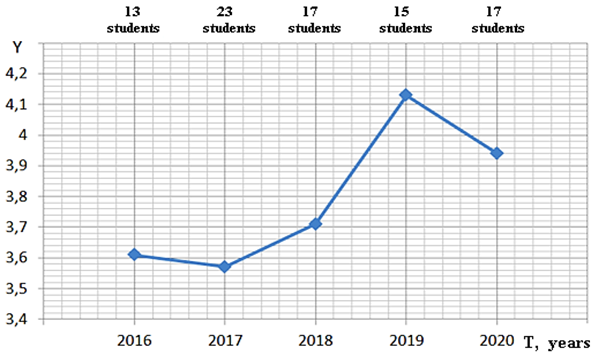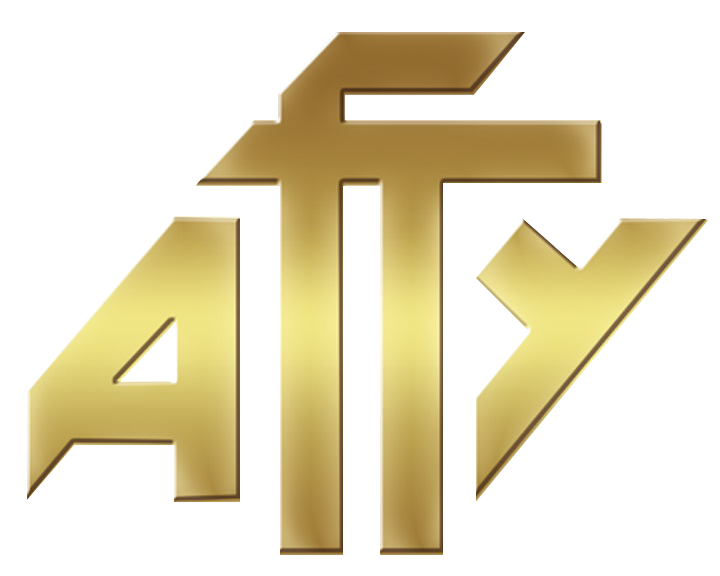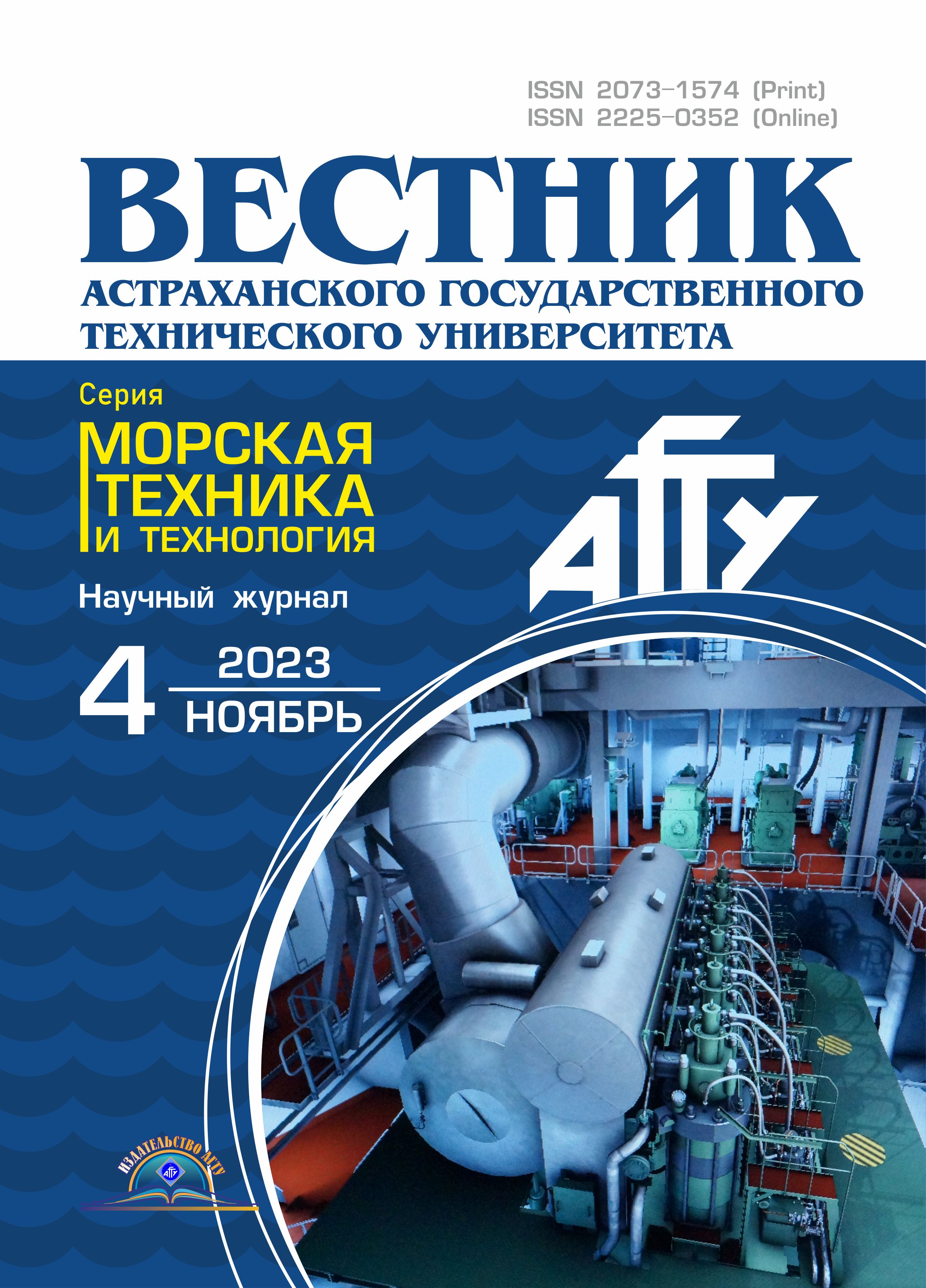Russian Federation
The use of educational technology, namely the educational trajectory, is considered on the example of the educational process at the Vladivostok Shipbuilding College in the specialty “Installation and maintenance of ship machinery and mechanisms”. This pedagogical technology is used throughout the entire training program for the training of a mid-level specialist in project activities, which completes each stage of training. During the entire period of four-year training, the future specialist studies various subjects, academic disciplines and professional modules. As part of the training, individual, course and diploma projects and works are used as the final stage of their development. The totality of all projects can be built into a single, but individual educational trajectory, which allows for training from the academic discipline “Introduction to the specialty” to the defense of the final qualifying work. The use of this pedagogical technology has made it possible to build a system of training middle-level specialists in such a way that a student can independently determine the vector of further development of both a specialist and a personality. The assessment of the application of this pedagogical technology based on the results of the state certification of students for a five-year period is presented. The results of the analysis of statistical data indicate the positive dynamics of the results of the protection of final qualification works, and also reveal the features of the results at key points. In general, the pedagogical technology under consideration has determined the possibilities of improving the methodological, material, technical, scientific base for the training of a mid-level specialist on the basis of the Vladivostok Shipbuilding College.
specialist, professional education, project, educational trajectory, project activity, professional modules, pedagogical technologies
Introduction
In recent years, the state has increasingly paid attention to the system of secondary professional education (SPE), as well as technical education [1]. Not a few scientific papers have been devoted to this topic [2-5]. The work of a specialist in this field of activity is always in demand in the labor market. On the territory of Primorsky Kray, there are a sufficient number of educational institutions specializing in the maritime direction, which in the unified list of professions and specialties of the SPE is referred to as 26.00.00 “Equipment and technologies of shipbuilding and water transport”. Conventionally, this area can be divided into two sections: maritime transport and shipbuilding. Marine transport includes such specialties as: 26.02.03 “Ship navigation”, 26.02.05 “Operation of ship power plants”, 26.02.06 “Operation of ship electrical equipment and automation equipment”. Shipbuilding includes: 26.02.02 “Shipbuilding”, 26.02.04 “Installation and maintenance of ship machinery and mechanisms”.
The specialty 26.02.04 “Installation and maintenance of ship machinery and mechanisms” provides training in the field of installation, repair, maintenance of ship power plants, automation of ship machinery and mechanisms. Educational activities in this specialty are carried out in two educational institutions of the region: Vladivostok Shipbuilding College and Far Eastern Shipbuilding College. The training is carried out in accordance with the current federal state educational standard.
In the Vladivostok Shipbuilding College, the basis of the first course is general education subjects, as well as the subject “Introduction to the specialty”. The basis of the second course is general professional academic disciplines, such as “Engineering Graphics”, “Mechanics”, “Electrical Engineering and Electronics”, “Materials Science” and others. Also, such professional modules are studied here as: “Performing simple standard locksmith operations during dismantling, disassembly, installation, assembly, deconservation and conservation, repair and maintenance of simple mechanisms, equipment, apparatuses and aggregates, conducting hydraulic tests of fittings, pipes and equipment” and “Performing work on one or more working professions”. During this course, there is an educational practice in educational and production workshops, where students receive primary knowledge and skills in plumbing.
In the third and fourth years, students master the following professional modules: “Installation, maintenance and repair of marine machinery and mechanisms”, “Design and preparation of design and technological documentation”, “Management of the organization's department”. Mandatory practical training at shipbuilding and ship repair enterprises. At the end of the production practice, qualification grades are assigned in the profession of “Ship fitter”. The training ends in the fourth year of training, passing qualification exams for professional modules, pre-graduate practice, as well as state final certification.
The main problem of modern secondary vocational education is the lack of sufficient motivation to master a particular chosen specialty. That is, obtaining the necessary competencies for the implementation of future professional activities. To solve this problem, various educational technologies are used that allow students to develop proper motivation for mastering their specialty. Improving the methodology of mastering the marine specialty based on the application of modern pedagogical technology is an urgent topic for the quality management system of education [6, 7].
The purpose of the study is to consider the implementation of the educational trajectory of students of the Vladivostok Shipbuilding College, specialty 26.02.04 “Installation and maintenance of ship machinery and mechanisms”.
Research objectives:
– consideration of the essence of educational trajectories that are used in modern education;
– designing the algorithm of the educational trajectory on the example of the specialty 26.02.04 “Installation and maintenance of marine machinery and mechanisms”;
– comparison of the results of the implementation of educational trajectories with the results of the state final certification.
Educational trajectory as a modern pedagogical technology
Individualization of education is one of the main topics that many researchers and teachers around the world pay close attention to. In the modern information society, where the amount of knowledge is growing every day, the need for an individual approach to education is becoming more and more urgent. However, the issue of individualization of training is complex and requires an integrated approach. The development of individual educational trajectories for each student is an ideal solution, which, in the conditions of educational institutions, can be combined with traditional forms of education [8].
Traditional teaching methods, such as lectures and group classes, provide a foundation of knowledge and a common base for all students. However, it is also important to provide an opportunity for each student to develop and study in accordance with their individual abilities and needs. One of the ways to achieve this goal is to use the educational trajectory. Modern educational trajectories allow students to concretize their studies, which will correspond to their interests and goals, as well as allow them to study materials at a pace convenient for them [9].
The educational trajectory allows you to determine the path that can be chosen by the student to achieve educational goals. Each student has their own unique interests, abilities and goals, and an individual educational trajectory allows them to use their resources most effectively and achieve success in their chosen field. When developing an educational trajectory, several factors must be taken into account [10].
The structure of the educational trajectory
The Vladivostok Shipbuilding College has been implementing professional educational technologies since September 2015. The essence of the implementation was to conduct at each course (semester) the defense of an individual project in leading subjects, disciplines and interdisciplinary courses (IDC).
In the first year as part of the defense of an individual project on the subject “Introduction to the specialty”. The project structure consists of three main parts:
– description and characteristics of the court chosen by the student, or proposed by the teacher;
– description and principle of operation of the ship's device, system and mechanism used on the selected vessel;
– portfolio of a student taking courses of additional professional education, within the framework of his specialty.
In the second year of the academic discipline “Technical thermodynamics and heat transfer”, the student prepares the following project on the study of the thermodynamic cycle of an internal combustion engine compared with the engine used on the ship considered in the first year. Also in the same course at IDC.01.01 “Technology of installation, repair and maintenance of ship power plants, automation equipment and ship machinery and mechanisms” in the section “Ship auxiliary power equipment”, the student prepares and defends a project on the device, construction and principle of operation of pumps, compressors, desalination plants, etc. Table 1 shows examples of individual projects carried out since 2015.
In the third year when studying IDC.02.01 “Design of ship power plants” two design and graphic works are being designed: “Thermal calculation of the ship's internal combustion engine” and “Thermal calculation of the ship's auxiliary boiler”. Naturally, for these works there will be a link to the completed stages of training. This course continues the training of IDC.01.01 – sections: “Marine internal combustion engines” and “Marine boiler installations”.
In the last year, several projects and works are defended at once. When studying IDC.02.01 “Design of ship power plants” the calculation of the ship power plant of the vessel selected in the first year is carried out. At IDC.01.01, when studying the section “Technology of installation, repair and maintenance of MPP”, a course project is being developed. The subject of this course project is mainly related to those accumulated projects that have been accumulated throughout the entire educational trajectory. Also in this course, the course work on the academic discipline “Economics of the organization” is defended. In this course work, the student makes an economic calculation and justification of the technological process considered on IDC.01.01.
Table 1
Names of individual projects for the first and second courses
|
№ student's |
First year |
Second year |
|
|
“Introduction |
“Technical thermodynamics and heat transfer” |
IDC.01.01 “Technologies |
|
|
1 |
Individual project on the topic: “Fesco Navarin container ship” |
Calculation and graphic work on the topic: “Thermodynamic cycle |
Individual project on the topic: “Systems of the main propulsive complex” |
|
2 |
Individual project on the topic: “Tanker Andropov” |
Calculation and graphic work on the topic: “Thermodynamic cycle of internal combustion engine with mixed heat supply” |
Individual project on the topic: “Design and principle of operation of centrifugal pumps” |
|
3 |
Individual project on the topic: “Tanker Arsenyev” |
Calculation and graphic work on the topic: “Calculation of the thermodynamic Rankine cycle” |
Individual project on the topic: “Ship boiler plant” |
The training ends with the state final certification. The final qualifying work, according to the standard, must correspond to one or more types of professional activity (professional modules). In fact, it will consist of several components discussed above. A structured and logically constructed explanatory note of the diploma project can be admitted to the defense at the state final certification. Table 2 shows the continuation of examples of individual projects.
Table 2
Names of individual projects for the third and fourth year
|
№ student's |
Third year |
Fourth year |
|
|
IDC.02.01 “Design of ship power plants” |
“Economics of the organization” |
IDC.01.01 “Technologies of installation, repair and maintenance of ship power plants, automation equipment and ship machinery and mechanisms” |
|
|
1 |
Individual project on the topic: “Thermal calculation of a four-stroke internal combustion engine of the brand M43-C” |
Course work on the topic: “Economic justification of repair |
Course project on the topic: “The technological process of repairing parts of the brand engine movement M43-C” |
|
2 |
Individual project on the topic: “Thermal calculation of a four-stroke internal combustion engine of the brand 6VDS29/24AL-1” |
Course work on the topic: “Economic justification of repair |
Course project on the topic: “Technological process of repair |
|
3 |
Individual project on the topic: “Thermal calculation of the ship's auxiliary boiler” |
Course work on the topic: “Economic justification for the manufacture of a ship's boiler condenser” |
Course project on the topic: “The technological process of manufacturing a marine boiler condenser” |
At the end of the fourth year, students who have successfully completed theoretical training and practice are allowed to submit a diploma project. The final qualifying work, according to the requirement of the educational standard, must correspond to the subject of one or more types of professional activity.
The combination of completed and protected works during the entire training period meets this requirement. Examples of names for graduation projects can be variants correlated to the previous tables:
- “Development of technology for repair of movement parts of the main engine of a container ship of the type “Fesco Navarin”;
- “Development of technology for repairing the water pump of the cooling system of the main engine of the tanker type “Andropov”;
- “Development of manufacturing technology for the ship boiler condenser of the tanker type “Arsenyev”.
Results of the implementation of the educational trajectory
In the education system, it is difficult to determine the absolute criterion of effectiveness. On the one hand, it can be: the number of employed graduates working in the specialty; a high passing score for applicants, as well as a high competition for admission. On the other hand, it can be: the number of the saved contingent, the percentage of attendance of students studying, as well as their academic performance. All these indicators are relative and cannot fully assess the implementation of a particular teaching methodology. Figure shows a graph of the results of the thesis project defense in the dynamics of 2016-2020.

Graph of the results of the defense of diploma projects in the dynamics of 2016-2020
The graph above shows the positive dynamics of the results of the defense of the final qualifying work (FQW). At the second key point (2017), there was a slight decrease in the Y indicator (the average score for FQW protection). This circumstance is explained by an increase in the number of graduates in 2017 by 45%. There is also a decrease in the indicator in 2020, but this can be explained by the peculiarities of restrictions caused by the COVID-19 coronavirus infection. In general, the application of the educational trajectory has had a positive impact on the professional training of students. Also, in the course of its application, it was necessary to solve a number of old problems with the material and technical base, computer equipment [11] and personnel [12].
Conclusion
As a result of the implementation of the educational trajectory, we come to the conclusions:
- the educational trajectory is a modern pedagogical technology that allows optimizing the educational process of training middle-level specialists in the field of ship repair;
- in this paper, the algorithm of designing the educational trajectory is described in detail on the example of the specialty “Installation and maintenance of ship machinery and mechanisms”;
- an assessment of the application of this pedagogical technology is given on the basis of the results of the state certification of students for a five-year period.
The development of the shipbuilding industry is impossible without high-quality specialized education. Therefore, on the territory of the Primorsky Territory, significant support is provided to educational institutions of vocational technical specialization.
1. Panamareva O. N. Sostoianie, problemy i perspektivy razvitiia obrazovaniia v morskoi otrasli kak osnovy formirovaniia novogo kachestva ekonomiki RF [The state, problems and prospects of development of education in the maritime industry as the basis for the formation of a new quality of the Russian economy]. Obshchestvo: sotsiologiia, psikhologiia, pedagogika, 2011, no. 3-4, pp. 53-61.
2. Kostylev I. I., Ovsiannikov M. K. Morskoe obrazovanie v mezhdunarodnoi industrii [Maritime education in the international industry]. Vysshee obrazovanie segodnia, 2015, no. 5, pp. 24-28.
3. Nadezhnikov A., Romanov N. Perspektivy razvitiia morskogo obrazovaniia i obucheniia: mnenie sudovladel'tsev [Prospects for the development of maritime education and training: the opinion of shipowners]. Vestnik gosudarstvennogo universiteta morskogo i rechnogo flota imeni admirala S. O. Makarova, 2015, no. 4 (32), pp. 229-234.
4. Lobanova L. V. Modul'no-kompetentnostnyi podkhod v sovershenstvovanii kachestva morskogo obrazovaniia [Modular competence approach in improving the quality of maritime education]. Vestnik Chitinskogo gosudarstvennogo universiteta, 2011, no. 6 (73), pp. 46-51.
5. Kostylev I. I., Ovsiannikov M. K. Morskoe obrazovanie kak primer mezhdunarodnogo sotrudnichestva [Maritime education as an example of international cooperation]. Vysshee obrazovanie v Rossii, 2015, no. 6, pp. 20-25.
6. Karacharovskii V. A. Sistemy menedzhmenta kachestva obrazovaniia v tekhnologicheskom kolledzhe [Quality management systems of education at the Technological College]. Vestnik Iuzhno-Ural'skogo gosudarstvennogo universiteta. Seriia: Obrazovanie, zdravookhranenie, fizicheskaia kul'tura, 2006, no. 8, pp. 87-92.
7. Badertdinova E. M. Upravlenie kachestvom obrazovatel'nogo protsessa v sisteme srednego professional'nogo obrazovaniia [Upravlenie kachestvom obrazovatel'nogo protsessa v sisteme srednego professional'nogo obrazovaniia]. Izvestiia Rossiiskogo gosudarstvennogo pedagogicheskogo universiteta imeni A. I. Gertsena, 2008, no. 77, pp. 252-256.
8. Sysoev P. V. Obuchenie po individual'nym obrazovatel'nym traektoriiam [Training according to individual educational trajectories]. Voprosy metodiki prepodavaniia v vuze, 2013, no. 2 (16), pp. 13-24.
9. Kholodniakova L. V. Vnedrenie individual'noi obrazovatel'noi traektorii v obrazovatel'nyi protsess kolledzha [Introduction of an individual educational trajectory into the educational process of the college]. Vestnik Iuzhno-Ural'skogo gosudarstvennogo universiteta. Seriia: Obrazovanie, zdravookhranenie, fizicheskaia kul'tura, 2008, no. 13 (113), pp. 79-82.
10. Goncharova E. V., Chumicheva R. M. Organizatsiia individual'noi obrazovatel'noi traektorii obucheniia bakalav-rov [Organization of individual educational trajectory of bachelor's education]. Vestnik Nizhnevartovskogo gosudarstvennogo gumanitarnogo universiteta, 2012, no. 2, pp. 3-11.
11. Gladkikh V. V., Sverchkov D. Iu. Tsifrovaia obrazovatel'naia sreda kak sredstvo obucheniia kursantov po indivi-dual'noi obrazovatel'noi traektorii [Digital educational environment as a means of training cadets on an individual educational trajectory]. Perspektivy nauki, 2019, no. 5 (116), pp. 237-239.
12. Kholodniakova L. V. Povyshenie kvalifikatsii prepodavatelei kak uslovie pedagogicheskogo soprovozhdeniia individual'nykh traektorii obrazovaniia [Professional development of teachers as a condition for pedagogical support of individual educational trajectories]. Vestnik Iuzhno-Ural'skogo gosudarstvennogo universiteta. Seriia: Obrazovanie, zdravookhranenie, fizicheskaia kul'tura, 2008, no. 29 (129), pp. 145-149.

















